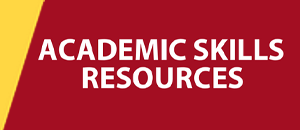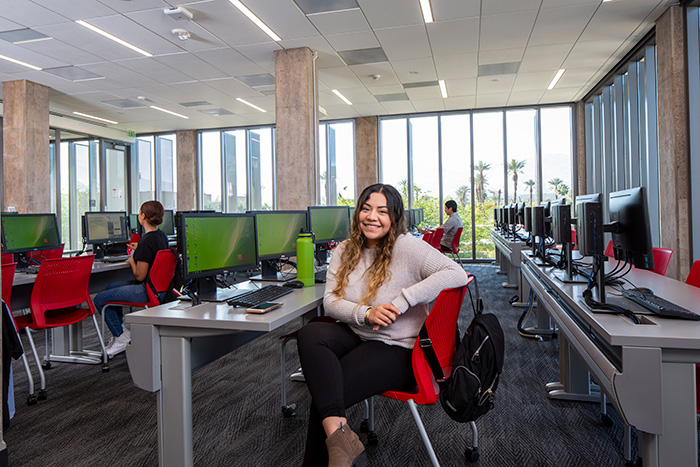Academic Skills Resources
TASC tutors, staff, and faculty can help you build general academic skills to make the most of your learning, and help you become self-sufficient learners. When you come to tutoring, you can then make better use of your time and tackle higher-order concepts and problems during sessions.
Every student is different, and some tips may work better for certain types of learners;
however, it is important for all students to try different strategies, especially
when you are at the beginning of your journey building study skills. Over time, you
will learn what works best for yourself.
Lecture Participation Before Tutoring
Attending class lectures is an essential part of learning in college. Lecture is often
where you receive your first introduction to course material from your instructor.
While we may think of the traditional lecture as the time when instructors speak to the class at the whiteboard or over Zoom, it is also important to note that in an asynchronous online environment, lectures can take different forms such as pre-recorded videos and readings within Canvas modules. Whatever form the lecture takes, it's important for you to take in this information before attending tutoring. A tutoring session should not be the first time you see the material, and it should not be a replacement for going to class.
Effective Note Taking
Taking notes during class discussion or lecture (even if the lecture is a pre-recorded
video) can help you better retain the information covered. In addition, lecture and
class notes are important references during tutoring sessions, particularly because
these materials will help you and your tutor review information or problems in the
same manner in which your instructor has presented them during class
During lecture, you should take notes in a way that works best for your learning style.
There are many systems for effective note taking. The University of Tennessee, Chattanooga
has a great summary of various note-taking methods. Here are the basics of note taking:
- Read any recommended readings before class. If the class has a textbook, read (or at the very least, skim) the chapters that will be covered in lecture. Doing so will make information presented during lecture feel less unfamiliar. Our former chemistry tutor Bronwyn created a video breaking down tips on how to read a textbook. While Bronwyn uses a chemistry textbook as an example, the principles outlined in the video are useful for any courses in STEM and the social sciences. Watch Bronwyn's textbook reading video.
- During class, focus on writing down important lecture information into your own words, making special note of the topics emphasized by the instructor. Make use of abbreviations, short-hands, and symbols. It may be challenging to listen attentively when you are trying to copy down everything the instructor says or writes. Recording the lecture (if it’s allowed), taking screenshots/photos of slides, and using short-hands like abbreviations and symbols can save time when taking notes. As a result, you can focus more time on analyzing information and asking questions during class rather than on transcription.
Time Management
During our busiest moments, haven’t we all wished that there were more than 24 hours in a day? Time management in college is essential, especially if you are juggling family responsibilities, work, and extracurriculars on top of a college course load. Below are some tools that can help you manage your time, so that you don't miss lectures and tutoring opportunities.
Calendar/Planner
Keeping a planner or calendar can help you organize your daily time commitments.
- Having a visual of daily commitments can help you decide how to allocate your free time. We encourage you to “schedule-in” tutoring time at TASC before, between, and/or after your classes. As a COD student, you have access to the online calendar below via your student Outlook account on the MyCOD Student Portal.
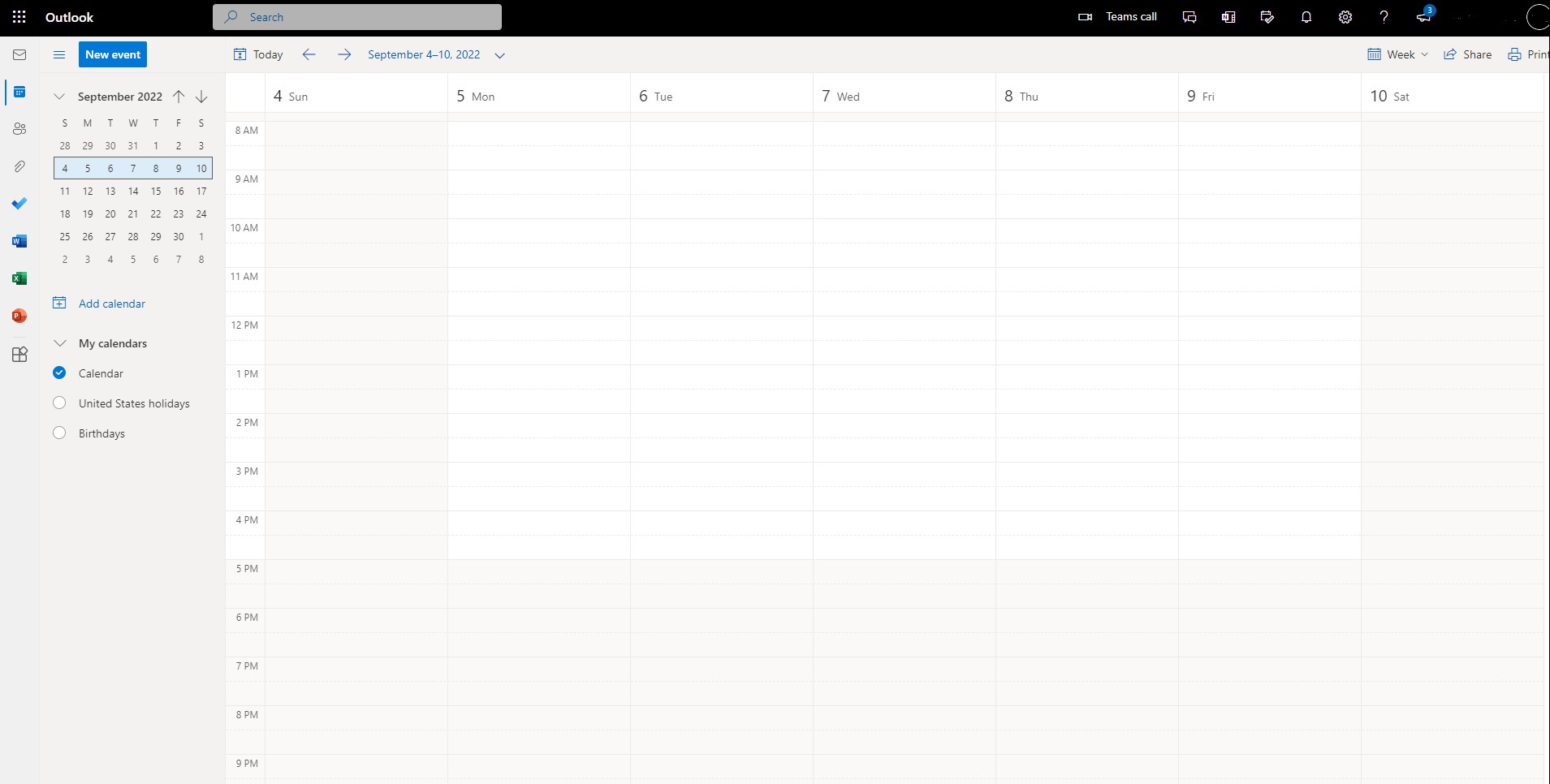
- Here is an example of how you can schedule tutoring and study time into your day:
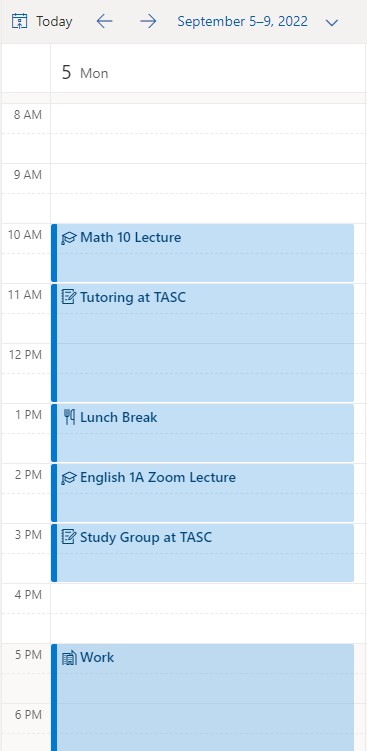
- If you prefer to customize your calendar/planner, you can also download, edit, and print TASC's weekly student calendar:
To-Do List
In addition to keeping a calendar/planner, creating a to-do list with a timeline can
help you stay on top of your assignments (and help you avoid procrastination!).
To-do lists are more effective when you can estimate and display how long each to-do list item will take to complete. Adding time to a to-do list can help you visualize if your daily to-dos are realistic.- Breaking down large tasks, such as writing a 10-page research paper, into a list of to-dos can make assignments more manageable. Adding personal goal dates to more time-consuming tasks on a to-do list can help with staying "on schedule" before the assignment is due.
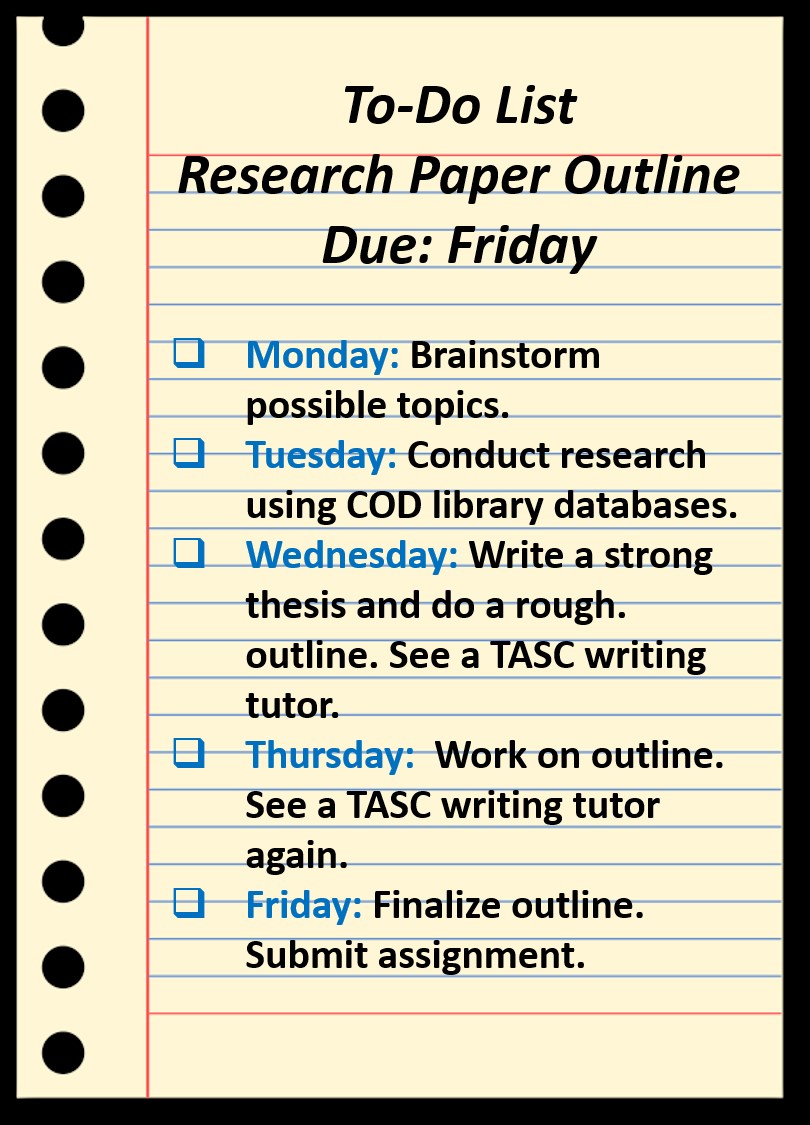
More Study Skills References
The academic skills mentioned above are just the tip of the iceberg. Below are a few
guides on some additional study skills that may help you further succeed in your courses.
- Utah State University's Creating Study Guides.
- Mojave Community College's Test Taking Strategies and Tips on Reducing Test Anxiety.
OpenStax Math books are available in English and Spanish for Algebra, Trigonometry, Calculus, College Algebra, Precalculus, and Statistics.
OpenStax Science books are available in English for Anatomy & Physiology, Astronomy, and Biology, and in English and Spanish for Chemistry, and Physics.


